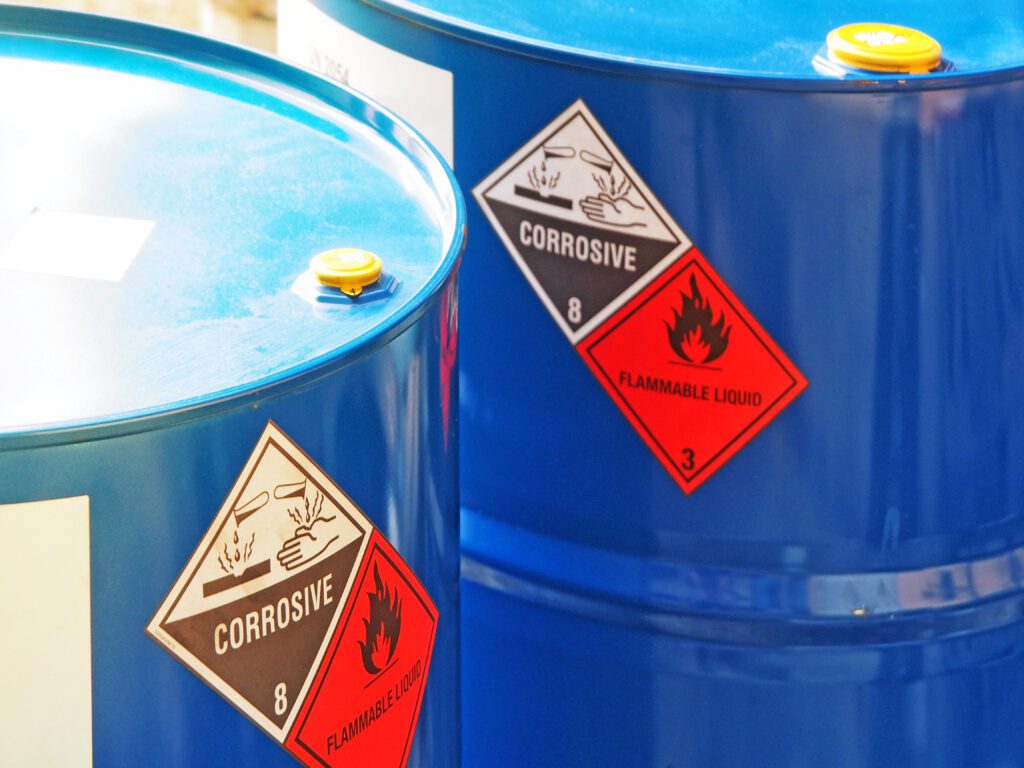What is Hazardous Waste?
Hazardous waste covers a wide range of materials that pose a risk to health or the environment. Many industries produce hazardous waste, from manufacturing and automotive businesses handling oils and solvents to offices and retail spaces disposing of electronic waste like batteries and old computers. Even the healthcare and beauty sectors generate hazardous materials, including clinical waste and chemical-based products. Proper classification is essential, as different types of waste require specific handling and disposal processes.
How to Dispose of Hazardous Waste Safely
The first step in managing hazardous waste is identifying and classifying it correctly. Government regulations provide clear guidelines on what qualifies as hazardous, so businesses must ensure they follow these classifications. Once identified, hazardous waste must be stored securely in leak-proof, labelled containers, away from non-hazardous materials, to prevent contamination. Regular waste collection by a licensed provider is crucial, as hazardous waste cannot be disposed of through standard waste streams. Businesses must also maintain records, such as waste transfer notes or consignment notes, to prove compliance.

Why Proper Disposal Matters
Top Tips for Ensuring Compliance
-
Know Your Waste:
Regularly review the materials your business disposes of and classify them correctly.
-
Use Licensed Carriers:
Always work with a registered waste provider to ensure safe and legal disposal.
-
Keep Detailed Records:
Maintain waste transfer or consignment notes for at least three years.
-
Store Waste Safely:
Use secure, leak-proof containers with clear labelling to prevent spills and contamination.
-
Train Your Staff:
Ensure employees handling hazardous waste understand proper storage and disposal procedures.
How We Can Help
At BSG Waste, we specialise in hazardous waste collection and disposal, ensuring businesses stay compliant while protecting the environment. If your business generates hazardous waste, get in touch to find out how we can help with safe, responsible disposal solutions.
